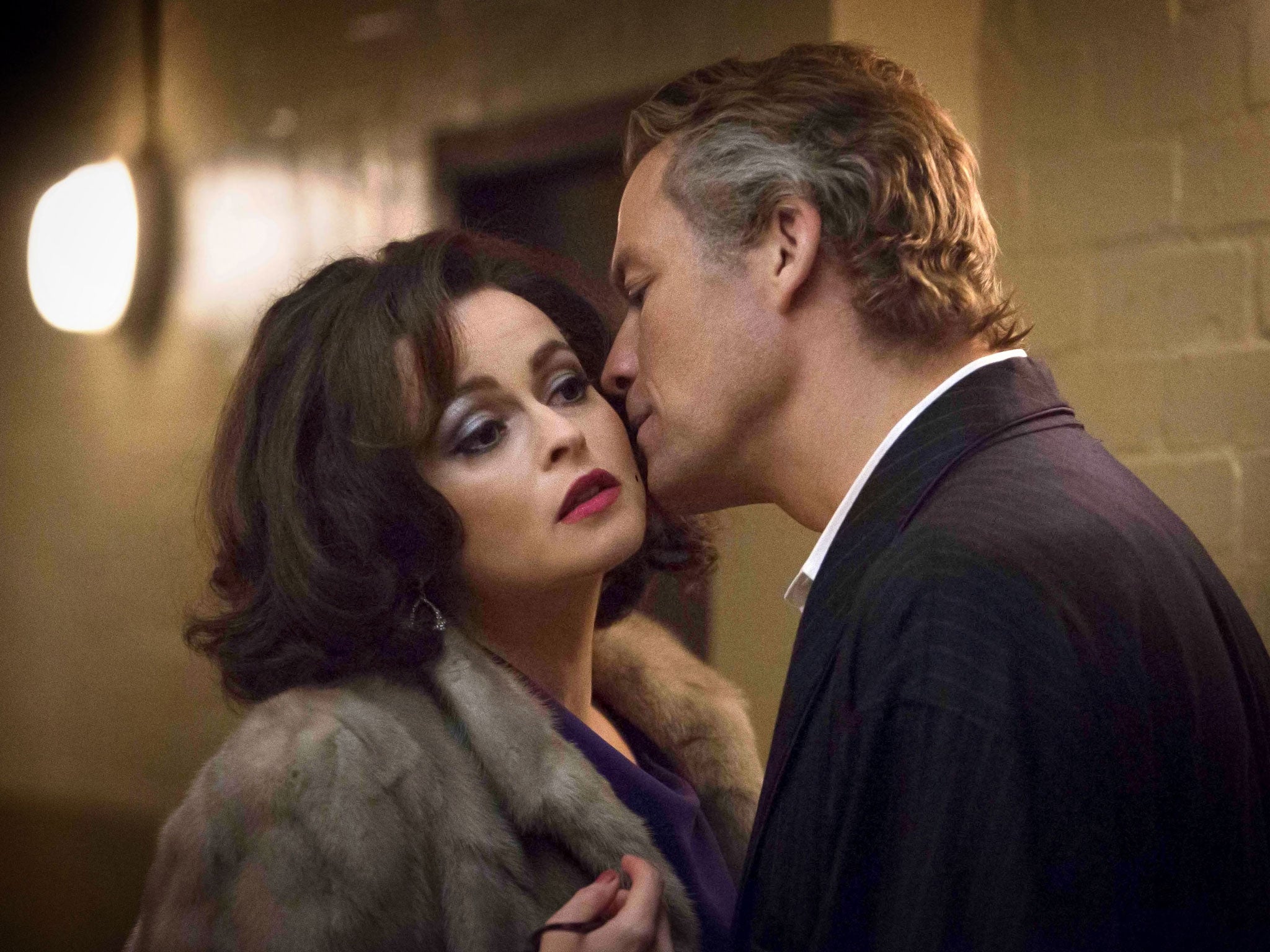Grace Dent on TV: Burton and Taylor, BBC4
Without the bitchy, bejewelled debauchery of bygone Hollywood, this was an affair to forget

Love, as many of you know by now, is a massive pain in the arse. And not just the arse, but a pain in the head, stomach and chest too. Not in the beginning, of course, when love's mere existence makes one's eyelashes feel longer and more voluminous, and allots one's gait a raffish swagger. I mean the stickier, messier end of love, such as in 1983 when Richard Burton and Elizabeth Taylor, after trying a manner of ways to be together harmoniously, were locked in a mutual, obsessive love-loathe cycle. Him, aged 57, her aged 50. Divorced twice. Both in relationships with other poor souls who'd never get the very best of them as it would always lie elsewhere.
Still, when I noticed Helena Bonham Carter and Dominic West were pencilled into depict one of the most glamorous, exuberent power-couples of 20th-century entertainment, my heart leapt at the glitzy, bitchy, celeb-bejewelled possibilities for the plot. What fabulous moments in bygone Hollywood debauchery would this love story touch on? Then, I remembered, this was a BBC4 biopic. Daft me. Call Garrard and tell them we won't be needing that sapphire and opal loan after all. Burton and Taylor, fixates only on ' 83 when the couple reunite for a theatre production of Noël Coward's Private Lives.
Burton is grey-haired with weak arms that can barely lift a theatrical sword. He has a permanent neck injury and is (mainly) teetotal due to chronic liver problems. Taylor is a boozy, pill-addled and highly manipulative mess. Perhaps Taylor's life always was a glorious car-crash to an extent, but we're allowed a good long time to dwell on her decline as this drama rarely moves from dank dressing rooms to hotel rooms and drab Boston rehearsal studio in which she arrives late, behaves lazily and fluffs her lines.
Bonham Carter and West are, it must be stressed, very good at delivering what they're given. West as Burton is gruff, enigmatic, with a whole heap of Welsh coal-miner's son washing about in his Oxford University, Hollywood-smattered voice. A gorgeous sense of vaguely unwilling superstar oozes from him in every scene. Bonham Carter plays Liz Taylor in a similar haughty, regal manner to the Queen Mother in The King's Speech, but with better eye kohl and more ladies in waiting.
I don't think anyone could really play Taylor in the manner that fans such as myself wish to remember her. There's a great showbiz anecdote about Taylor holding soirées at her own home and always appearing at the top of the stairs three hours later than schedules as she'd been steaming in a hot bath to achieve an optimum dewy glow for her big “IT'S ME!” entrance. We see none of this jolly, starry, high-times egocentricity in the play. In fact, none of Taylor and Burton's youthful happiness at all, aside from one, singular, surreal flashback, where the pair do aerobics in a hotel which is supposed to signal that they were at one point blissful. There's nothing blissful about aerobics. I couldn't suspend my disbelief this far. Aerobics suck, even if Richard Burton in his prime is telling you how beautiful your bouncing boobs are.
There is, however, a true sense within the scant depressing script that Elizabeth Taylor, when it comes to her former husband, is a woman with ownership issues. Burton is on the brink of marrying his new girlfriend Sally. Taylor sees this so-called Sally nonentity as a mere walk-on part in her and Burton's great ongoing love-drama. “Love is the drug” – that line from the wonderful Roxy Music track – is a theme that pokes and plays throughout the piece.
Taylor is an addict. Famously, she checked into the Betty Ford clinic publicly after Private Lives ended. Yet, as much as the grasping for pills and booze, Taylor craves and adores the worldwide furore, those testy press conferences and those stellar ticket sales every time her and Burton rekindle their friendship. In the opening scenes, Taylor publicises her and Burton's theatre re-emergence with newspaper adverts featuring love hearts skewered with Cupid's bow. “Oh we designed them in a hurry!” Taylor trills, waving a hand airily, as Burton moans that this has sent the press into raptures and maybe his actual girlfriend might be hurt. Taylor also gets a massive addict's kick from the fact Burton is never within three sentences of screaming his head off at her, before finishing his exasperated rant with reminders that he loves her, will always love her, for she is “the greatest actress in the whole goddamn world”.
The whole thing – to quote pop goddess Taylor Swift, who'd never find herself in this sort of mess – is “exhausting”. Everyone around them is exhausted, the director, the play's poor harassed cast and particularly Liz's PA, who is clearly so exhausted she can't remember if she is English or American so does both accents often within one sentence.
This was the last BBC4 biopic as the money has been taken to be spent more wisely elsewhere. I'm not sure, on the evidence of this drama, that I shall miss their lovingly documented misery in any great way at all.
Join our commenting forum
Join thought-provoking conversations, follow other Independent readers and see their replies
Comments
Bookmark popover
Removed from bookmarks